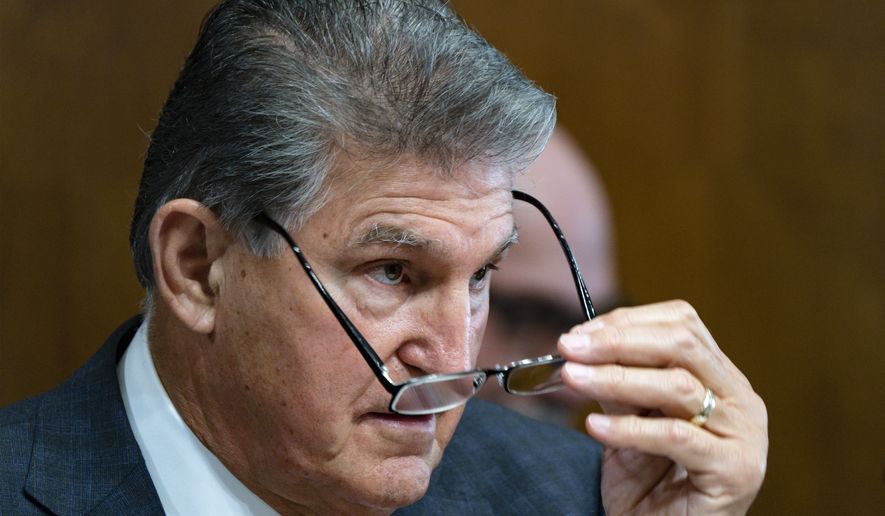Senate Energy Committee Chairman Joe Manchin III on Tuesday killed another major climate-change initiative that Democrats were hoping to include within President Biden’s $3.5 trillion expansion of the federal safety net.
Mr. Manchin, West Virginia Democrat and a key swing vote for the president’s agenda, told reporters he was opposed to a carbon tax and that discussions on the topic would not move forward.
“The carbon tax is not on the board at all right now,” he said.
A carbon tax functions as a surcharge on goods and services or industries that emit carbon dioxide, the primary greenhouse gas that contributes to climate change. In recent days, the idea gained steam among Democrats after Mr. Manchin voiced his opposition to including another major green initiative within the $3.5 trillion package.
Mr. Biden initially sought to earmark $150 billion from the bill for a tax credit system fostering a “clean electricity standard.”
The program would have given federal subsidies to electric utilities if they switched from coal and natural gas to solar and wind power. Under the plan, utilities that failed to reach a certain carbon reduction threshold annually would face several financial penalties.
Mr. Manchin, chairman of the Senate Energy Committee, was initially tasked with writing the new program into law. After months of negotiations, he told the White House he would be unable to support the plan because of its adverse impact on coal and natural gas, two resources vital to West Virginia’s economy.
Since Democrats planned to push the package along party lines within the evenly split Senate, Mr. Manchin’s opposition essentially killed any hopes for the program.
That reality left the White House scouring for another way to meet Mr. Biden’s pledge to curb greenhouse gas emissions by more than 50% over the next decade.
Senate Finance Committee Chairman Ron Wyden, Oregon Democrat, stepped into the fray by offering a carbon tax as an alternative. Long a champion of the proposal, Mr. Wyden privately broached the topic with Democratic colleagues in hopes of building broad support.
But Mr. Manchin’s opposition will likely prevent the proposal from being adopted.
Generally, carbon-pricing proposals have been complicated by their broad impact. They tend to target nearly every consumer or industry emitting carbon. The plans usually fail to gain traction beyond environmentalist circles.
Such concerns are evident among both Democrats and Republicans.
“I’m not a big fan of the carbon tax,” said Sen. John Tester, Montana Democrat. “I just don’t think it works the way it was explained to me.”
• Haris Alic can be reached at halic@washingtontimes.com.




Please read our comment policy before commenting.